Accreditations
A brief description of each of the different accreditation schemes for which installer and supplier members may be registered are provided below.
These should provide you with a general overview as to what that that accreditation means to both the installer and supplier and therefore to you as a customer. For more detailed information on each accreditation and what they cover, click on the appropriate links.
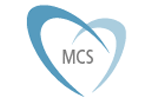 |
MCSThis scheme certifies both technologies and installers, and enables consumers to receive the government’s financial incentives for installing renewable heat and electricity generating technologies. If the installer is not MCS certified, then a certified company must commission the installation. There are equivalent accreditations for solar thermal technologies (but not for the installers) such as the CEN Solar Keymark. A solar thermal system approved under Solar Keymark may still be eligible for the Renewable Heat Incentive, as long as an MCS accredited installer has completed the installation. For more information, visit www.estif.org/solarkeymark/ |
 |
RECCThe Renewable Energy Consumer Code is backed by the Office of Fair Trading as part of its self-regulation initiative, the Consumer Codes Approval Scheme. It was set up by the Renewable Energy Association and aims to guarantee “a high quality experience for consumers wishing to buy or lease small-scale energy generation systems for their homes”. Installer and supplier members of this scheme are companies selling or leasing these technologies and by showing the RECC logo, they have agreed to comply with the Renewable Energy Consumer Code. |
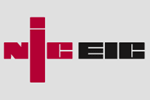 |
NICEICNICEIC has been assessing the technical competence of electricians for over 50 years. Their aim is to protect everyone who uses electricity from unsafe electrical installations anywhere. To achieve this, we maintain a register of qualified, competent electricians. We look at a representative sample of the contractor’s work, their premises, documentation, equipment, and the competence of their key supervisory staff. Once contractors become registered with NICEIC, they are re-assessed on a regular basis to ensure high standards. |
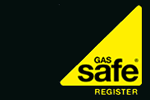 |
Gas SafeThe Gas Safe Register is the official gas registration body for the UK, Isle of Man and Guernsey, appointed by the relevant health and safety authority for each area. It comprises a list of gas engineers who are registered to work safely and legally on boilers, cookers, fires and all other gas appliances. By law, all gas engineers must be on the Gas Safe Register. This replaced CORGI as the gas registration body in the UK in 2009. It works to improve and maintain gas safety to the highest standards, and protecting the public from unsafe gas work through:
|
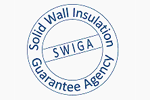 |
Solid Wall Insulation Guarantee Agency (SWIGA)SWIGA provides technical guidance and an independent guarantee for external and internal solid wall insulation systems fitted by approved installers in the UK, covering all building types and tenures. Membership demonstrates commitment to competence and workmanship standards (which can include integration with the Competent Persons scheme). |
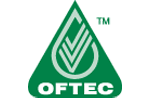 |
Oil Firing Technical Association (OFTEC)OFTEC is the Oil Firing Technical Association, representing the oil heating and cooking industry in the UK and the Republic of Ireland and establish common technical standards for oil fired heating and cooking appliances and oil storage tanks. As a not-for-profit trade association, they operate a Competent Persons Scheme for oil engineers who install, commission and service oil-fired equipment. OFTEC Registered Businesses and their Registered Technicians are assessed and regularly inspected by OFTEC to ensure they operate within Government guidelines and in accordance with best practices. This should ensure that you are given appropriate advice. OFTEC has the responsibility of maintaining standards among the technicians registered with us, and if you think that a technician has not acted appropriately, you can ask us to investigate. |
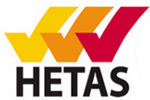 |
HETASHETAS is the official body to approve biomass and solid fuel domestic heating appliances, fuels (HETAS Quality Assured Fuel is the national quality mark for UK firewood, pellets, chips and briquettes) and services. This includes the registration of competent installers and servicing businesses. Registered installers are assessed for competence in the installation of solid fuel and biomass appliances and can self-certify their installations. An approved retailer demonstrates best practice of advising consumers (on aspects of appliance maintenance, carbon monoxide safety and government regulations) through staff training, appliance labelling and provision of advice literature. HETAS Appliance Approval demonstrates compliance with current regulations and standards. |
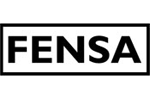 |
Fenestration Self-Assessment Scheme (FENSA)FENSA is a leading body in providing building regulations compliance for homeowners replacing doors and windows. FENSA registered firms are subject to a pre-approval inspection and after registration they undergo regular assessment by an independent body. FENSA offers consumers:
|
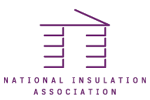 |
National Insulation Association (NIA)The NIA represents the UK insulation industry and members include manufacturers and installers operating for domestic and business properties. Members agree to follow a code of professional practice to ensure consumers receive the best standard in customer service and benefit from the NIA working to maintain the highest industry standards. |
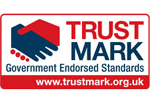 |
TrustmarkTrustMark is an independent not-for-profit organisation, endorsed by Government to provide a quality mark for tradesmen, and is supported by consumer protection groups. They provide a free service to householders to find local tradesman, whose competence and fair trading practices will have undergone independent assessment. Members sign up to a monitored and audited code of practice that includes insurance, health and safety practices and customer care. They require on-site inspections to check workmanship and trading practices, carried out by independent, qualified inspectors. TrustMark firms work to Government endorsed standards, and are able to offer insurance backed warranties and deposit protection. TrustMark standards are developed by a range of consumer and industry interests in order to achieve the right balance between consumer protection, industry practicalities and costs. |
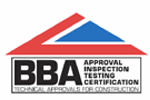 |
The British Board of Agrement (BBA)BBA is a major not-for-profit authority offering approval and inspection services for manufacturers and installers supplying the construction industry. The BBA's certification and inspection services are recognised by building control, local authorities, industry insurers and key trade associations in the construction industry. Certification is determined by assessing manufacturers’ products, systems and procedures to ensure they are fit for purpose. They also provide inspection services monitoring installers of BBA approved schemes and third inspection of installers for client managed schemes. |
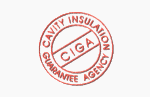 |
The Cavity Insulation Agency (CIGA)CIGA provides independent 25 year guarantees for cavity wall insulation fitted by registered installers in the UK and Channel Islands. This guarantee covers defects in materials and workmanship, and if problems do occur, CIGA ensures they are swiftly rectified. CIGA also operates and administers the Cavity Wall Insulation Self Certification scheme (CWISC) in association with the British Board of Agreement (BBA). The scheme provides homeowners with the reassurance that work by registered contractors complies with the requirements of the Building regulations. Further details and a list of CIGA members who are also registered under CWISC is available on the dedicated CWISC website |
 |
Competent Persons SchemeThe CPR represents all of the contractors in the building services industry that have been assessed as being competent by a government authorised certification scheme. Contractors on this register are regularly assessed to the standards of their sector and able to self-certify their work as complying with the building regulations as an alternative to submitting a building notice or using an approved inspector. A Competent Person must be registered with a scheme that has been approved by The Department for Communities and Local Government (DCLG). Schemes authorised by the DCLG are listed on its website |
